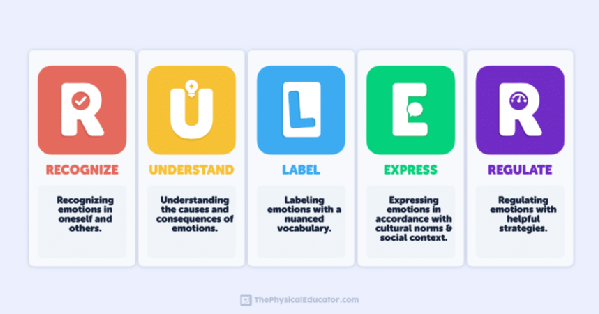Wellbeing and Identity
To leave a comment, click on the Comment button at the bottom of the page. Type your message into the window and then click on the Add comment button. If your comment refers to a specific update, please note this within the body of your message. You will not be able to attach files to your comments, but you can include links in the message window.
Date of update |
|
|
|
4th January 2023ReframingIn this brief video, Rachel Cooper introduces reframing and how we can shift our mindset. Below are the resources that Rachel discusses in the video:
|
 |
11th January 2023Positive mindsetOur mindsets are sometimes our worst enemies - check out this 10 minute video to learn a few simple tricks to make yours into an ally.
|
|
|
18th January 2023Responding to FeedbackSometimes our feelings just get in the way of feedback and it leaves us feeling angry, deflated or like what we're doing is futile. Why not test out this model called the OK Corral when you get or give feedback.
When you're OK and the person you're talking to is OK, you'll find the feedback much easier to take. If not, identify any issues that make it not OK and deal with them first. THEN schedule the feedback and see how much better it goes. |
|
|
25th January 2023Physical Wellbeing - let's focus on sleepRead:
Watch:Apps to support sleep:Podcasts: |
|
|
1st February 2023Relational Wellbeing - let's focus on human connectionRelationships are the centre of the classroom atmosphere for Sherwood (2008) and the main hurdle to wellbeing in school communities is negative or faulty relationships according to Morris (1995). A more relational approach to wellbeing opens the door to kinds of well-being that are more peaceful, cooperative, spontaneous and less calculative and competitive. As Miller and Stiver (1997, p.22) suggest: In creating mutually enhancing connections, we can transform all the institutions in our lives, from school to workplace to home. For this reason I suggest we should be placing relational wellbeing in school communities at the centre of our concern (Burrows, 2011). Here’s a short index to the themes on this talk:
Be prepared to be amazed! Connections can bring joy – on a global scale... |
|
|
8th February 2023Vocational Wellbeing |
|
|
15th February 2023Emotional WellbeingTake a look at the video to explore what emotional resilience is and what we can do to cultivate it. Click here to explore some strategies for developing your own emotional resilience so that you can bounce back like Tigger. Further resources |
|
|
1st March 2023Financial WellbeingFinancial security is fundamental to wellbeing. But almost 1 in 3 workers are concerned about their level of personal debt. In unpredictable times, money becomes an even greater cause of stress and anxiety so why not take a look at these resources to see what help is available.
For your ongoing career in education, take a look at Budget Planner Financial SupportLink opens in a new window and budgeting tips from Education Support, the charity that supports all educators. |
|
|
8th March 2023The importance of movementResearch tells us that for most people movement and exercise support and improve our mental wellbeing. It can be difficult to find the time or the desire to exercise when we are busy but it has a range of benefits. Click here for the link to Warwick Sport to see what exercise opportunities are available on campus. For further information on the benefits of exercise on wellbeing click hereLink opens in a new window. |
|
|
15th March 2023Compare and DespairWhen we're learning something new, like how to teach, we are surrounded by others who may appear to be making more progress, getting better results or having an easier time of it than us. The seemingly fabulous results or progress of others can make us feel inadequate. But don’t worry! Today we will learn how to understand and deal with jealousy, while making sure we feel joy for others. For me, the very best bit is in minute two of this recording! A great two minute video from Brene Brown on how to be a great friend, using empathy: A podcast (4 min) on authentic relationships: https://www.globalplayer.com/podcasts/episodes/7Drdbai/Link opens in a new window A 4 minute listen on social comparison called “I’m happy for you”: https://www.globalplayer.com/podcasts/episodes/7DrdNFJ/Link opens in a new window A longer read/listen: The Compassion Cure by Lucy SheridanLink opens in a new window |
|
|
22nd March 2023Get movingWe know that there is a connection between our physical health and our mental wellbeing. Exercise doesn't have to be punishing though. In fact, if we move our bodies in a way that feels good and is enjoyable we are more likely to continue to exercise and reap the benefits. Listen to the podcast below that explores the link between lifestyle and mood. |
 |
29th March 2023Emotional WellbeingWe all experience a range of emotions every day and that is an important part of being human. Being able to recognise our emotions is a big part of managing our own emotional health and helps us build resilience and self-awareness. It also helps us support children who are struggling with their own emotional health. Here's a look at some common examples of good emotional health and the impact it can have:
What is emotional intelligence? This YouTube video gives a simple explanation: How can I help develop my/my children’s emotional Intelligence? Have a look at this video for some ideas: The RULER model can help:
The mood meter is a useful tool for identifying and understanding emotions. This talk, by Mark Bracken, author of “Permission to Feel” helps us understand how Emotional Intelligence can transform students’ experience of school. If you only have time to watch 3 minutes, go straight to 14m 45 seconds. |














